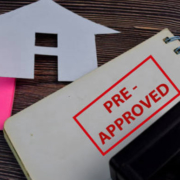What You Should Know About Rate Locks

Mortgage rates are near all-time lows right now, but that doesn’t mean they’ll stay that way forever.
That’s where a rate lock can come in. Rate locks guarantee you a certain mortgage rate for an extended period, protecting you from the possibility of rising interest rates while you complete the homebuying process.
Are you shopping for a home? Here’s what you need to know about mortgage rate locks:
Q: What is a rate lock?
A: A rate lock guarantees your initially quoted mortgage rate for an extended period of time. Your rate can’t rise at any point during your lock period (even if market rates rise), giving you plenty of time to close the loan.
Q: How long does it last?
A: The length of a rate lock depends, though it’s usually 30, 60 or 90 days. In some cases, you may be able to pay for a longer lock period if you need more time.
Q: Why would you want to lock your rate?
A: Rate locks are smart if interest rates are very low or fluctuating. They’re also a good move if you have a unique situation — like being self-employed — and it could take a bit longer to close your loan.
Q: Are there any risks?
A: In the event market rates drop, there’s a chance your locked-in rate could be higher than what newer applicants are being quoted. You can pay for a “float down” option when you lock, which essentially means you’d get the lower market rate if they do fall.
Do you have more questions about rate locks? Are you ready to sort out your home financing? Get in touch so we can discuss your options.



 No
No








